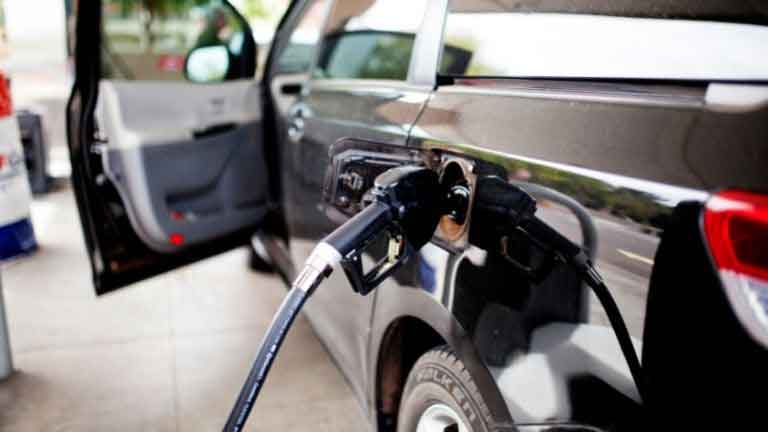Get information related to Smell Of Gas In Car When Heat Is On that you’re searching for in this article, hopefully it can assist you.

The Peculiar Scent of Gas in Your Car’s Heating System: Understanding the Causes and Solutions
As winter’s icy grip tightens, our cars become havens from the cold. We crank up the heating system, expecting a comforting warmth, but sometimes, an unsettling aroma invades the cabin – the unmistakable smell of gas. This disconcerting scent can be a disconcerting sign of an underlying issue, requiring immediate attention to ensure your safety.
Let’s delve deeper into the causes and potential solutions for this perplexing olfactory conundrum, ensuring a safe and odorless driving experience throughout the wintry months and beyond.
Gas Leak in the Exhaust System
One of the most common culprits behind the smell of gas in your car’s cabin while using the heater is a leak in the exhaust system. This vital component is responsible for channeling exhaust fumes away from the passenger compartment, but cracks or holes in the system can allow these noxious gases to seep into the cabin.
Exhaust leaks often manifest as a pungent, sulfurous odor and are particularly noticeable when the heating system is running, as the increased airflow draws the gases into the cabin. It’s crucial to address any suspected exhaust leaks promptly, as extended exposure to these fumes can harm your health.
Defective Heater Core
Nestled deep within your car’s dashboard, the heater core plays a crucial role in circulating warm air throughout the cabin. However, a defective heater core can introduce coolant into the heating system, resulting in a sweet, pungent odor similar to antifreeze.
Coolant leaks can occur due to corrosion, damage, or a malfunctioning heater core. Ignoring a coolant leak can lead to reduced heating efficiency, potential engine damage, and the continued presence of the unpleasant odor in your car.
Fuel Injector Malfunction
A faulty fuel injector can cause excess fuel to enter the combustion chamber, leading to incomplete combustion. This results in unburnt fuel escaping into the atmosphere, creating a strong gasoline odor that can waft into the cabin, especially when the heating system is operating.
Fuel injector issues often have other noticeable symptoms, such as poor engine performance, increased fuel consumption, or a rough idle. If you suspect a fuel injector malfunction, prompt professional attention is essential to resolve the problem and restore normal engine operation.
Faulty Catalytic Converter
The catalytic converter is a crucial emissions control device designed to minimize harmful pollutants released into the atmosphere. However, a malfunctioning catalytic converter can become less effective, allowing unburned fuel and noxious gases to escape into the exhaust system and potentially enter the cabin when the heater is turned on.
Catalytic converter issues can arise due to aging, contamination, or physical damage. Recognizing the symptoms, such as a pungent sulfur or rotten egg odor, is critical, as a defective catalytic converter not only affects air quality but can also impact engine performance and fuel economy.
Evaporative Emissions System Malfunction
The evaporative emissions system (EVAP) is responsible for preventing fuel vapors from escaping into the atmosphere. However, a malfunctioning EVAP system can lead to fuel odor in the car, particularly when the heating system is drawing air from outside, such as when the recirculation mode is disabled.
EVAP system issues can result from loose or damaged hoses, faulty valves, or a malfunctioning charcoal canister. Addressing these problems promptly ensures optimal fuel efficiency, reduces emissions, and eliminates the unpleasant gas odor in the car.
Expert Advice for a Gas-Free Cabin
To maintain a fresh and odorless driving environment, consider the following tips and expert advice:
- Regularly inspect your exhaust system for leaks or damage and address any issues promptly.
- Keep your car’s cooling system in top condition by having your coolant flushed and replaced according to the manufacturer’s recommendations.
- If you suspect a fuel injector issue, seek professional diagnosis and repair to prevent further problems.
- Monitor your catalytic converter’s condition and address any signs of malfunction promptly to ensure optimal performance and air quality.
- Have your EVAP system checked periodically to ensure proper operation and prevent fuel odor issues.
FAQs on the Smell of Gas in Cars
Let’s address some frequently asked questions regarding the smell of gas in cars:
- Q: Can the smell of gas in my car be dangerous?
A: Yes, extended exposure to exhaust fumes can cause health issues. If you detect a strong gas odor, ventilate your car immediately and seek professional diagnosis. - Q: How can I tell if the smell of gas is coming from the exhaust system?
A: The odor is often sulfurous and intensifies when the heating system is running. - Q: What should I do if I suspect a coolant leak?
A: Have your car inspected promptly to prevent further damage to the engine and cooling system. - Q: How can I prevent fuel injector issues?
A: Regular fuel filter changes and using high-quality fuel can help maintain injector performance. - Q: Is it safe to drive with a faulty catalytic converter?
A: No, a malfunctioning catalytic converter can increase emissions and potentially impact engine performance. It’s recommended to address this issue promptly.
Conclusion
The smell of gas in your car when using the heater is an indication that something is amiss. By understanding the potential causes discussed in this article, you can take proactive measures to ensure your safety and the well-being of your passengers. Don’t ignore this peculiar odor; schedule a professional inspection and address the underlying issue promptly.
We hope this comprehensive guide has provided you with valuable insights into this topic. If you have further questions or would like to share your experiences, please feel free to join the conversation in the comments section below.
Stay informed and drive safely!

Image: fixingengines.com
You have read Smell Of Gas In Car When Heat Is On on our site. Thank you for your visit, and we hope this article is beneficial for you.